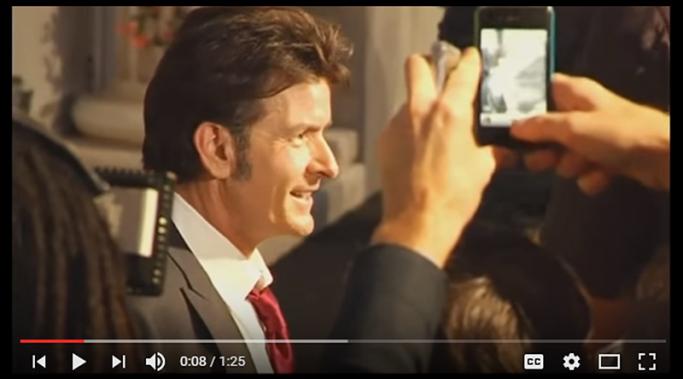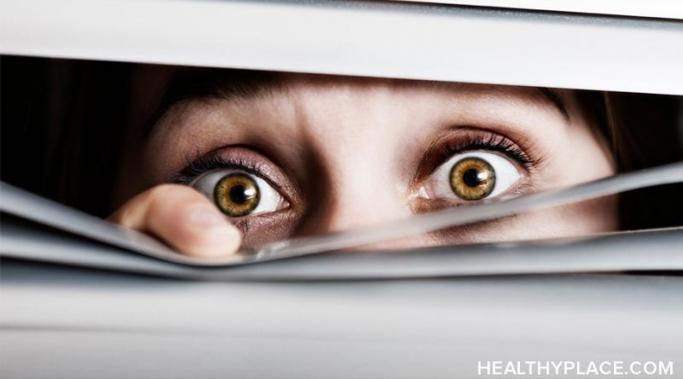Some people believe that being crazy makes you creative (perhaps brilliant) and being creative makes you crazy. Similarly, along this line of logic is that taking medication makes you uncreative and perhaps, un-brilliant.
Well, pish-tosh I say.
Being Crazy
Last week I waded into Charlie Sheen territory. It was, perhaps, a touch more eel-infested than I had anticipated but life is surprising like that. Yes, I said Sheen is going through a manic episode as part of a mental illness. (And no, I still haven’t become a doctor.) Let’s say for the moment, I’m right.
Since I made my case for compassion for Sheen and mental illness, over scorn and ridicule, people have made the case back that it’s the media’s fault Sheen’s behavior is this out of control.
I don’t think so.
I know this seems like an odd question, but I was considering it this morning (in my shower). It is a common problem for people with a mental illness. I have a tendency to avoid showering (really) and I know of others with a mental illness have gone weeks without showering.
So, if all we’re talking about is standing in some warm water, why don’t we want to shower?
Charlie Sheen's recent remarks may seen funny to some, but when I look at his statements and actions, to me they scream mania, a symptom of bipolar disorder.
I’m not known for my cheery everything’s-going-to-be-OK-puppies-rainbows-lollipops perspective. In fact, I’m against such perspectives. I find them disingenuous, phony, or seriously ill-informed. Save the rose-colored glasses for Sir Elton John, thank-you.
I find smiling, being positive and telling people how great everything is to be just another chore on my list of things to do today when I’m already busy just trying to keep breathing and possibly pay rent.
My brain is a finite resource. Well, the grey, gooey thing in the skull is finite for everyone. But my brain’s ability to think reasonably is a finite resource. When I write it thinks, thinks, thinks, and then there is a dramatic thud.
My brain then stops thinking.
I’m bipolar. Now wait, before you start to tell me about how “I’m a person with bipolar disorder,” you might want to know, I don’t care. I use the English language in a non-politically correct way. Call it a quirk.
I have a new one for you: I am stalked by bipolar disorder. Kind of like an angry ex-boyfriend for whom you have a restraining order but insists on constantly scaring and tormenting you anyway.
Women are classic “I’m sorry” – ers. We’re taught to say “I’m sorry” from the time we can utter the words. We are the peacekeepers, claiming fault so no one else has to. We have to apologize for emotions because we’re “overemotional.” We have to apologize for our needs because we’re “clingy.” We’re sorry for our behavior, our significant other’s behavior and our children’s behavior. We are simply, sorry.
And most women in 2011 realize this habit is one borne of the past and is no longer relevant in our everyday world. We realize we are not “sorry” at the drop of a hat or a glass of wine spilled by a drunken significant other. We realize there is a time to be sorry and there are times not to be.
Unfortunately for me, I feel like I have to be sorry all the time, for every tear, for every thought, because if I’m not, people will leave.
I think I’m pretty great as a general rule. I’m kind, caring, intelligent, creative, talented, sexy, witty and a bunch of other stuff. Not particularly greater than anyone else, just the normal amount of great.
Except for when I’m not, of course. Except for when I'm darkness sliced from evil. Except for when my slithering existence requires extinguishing. Then, I’m not so great.
I grew up in a small town where there was no diversity of any sort, in beliefs or otherwise. And one of the things an outspoken group really didn’t like was gay people. This group lodged a major war to ensure that anything ever mentioning homosexuality was banned from my high school.
I thought these people were idiots. So I fought them. I wasn’t about to let some closed-minded, ignorant people marginalize others based on their sexuality. I went to their rallies and spoke against them. I wrote stories for our paper.
And then, sometime around age 17 I figured out I was bisexual. So I jumped into a closet for a few years.



